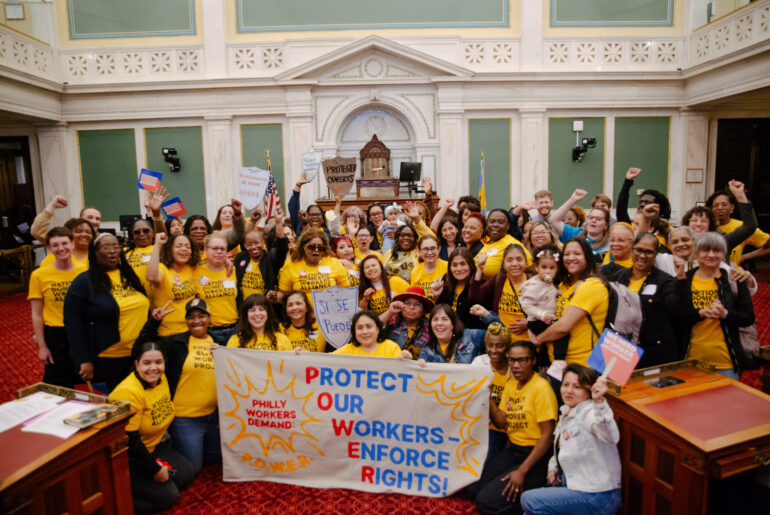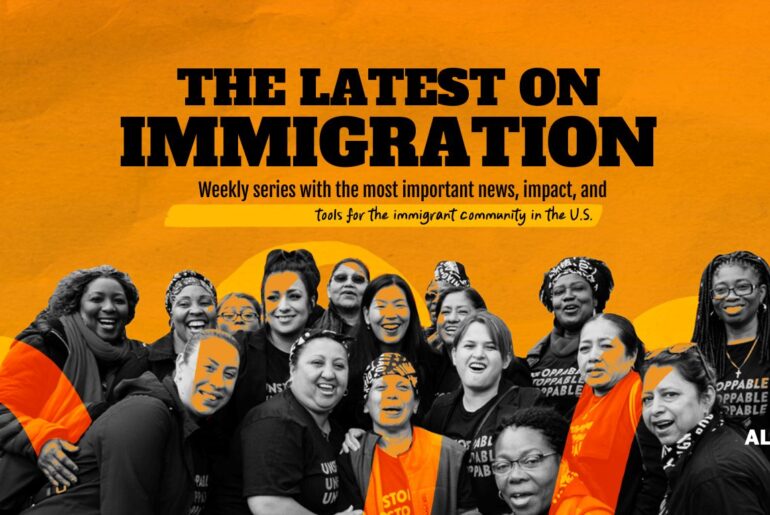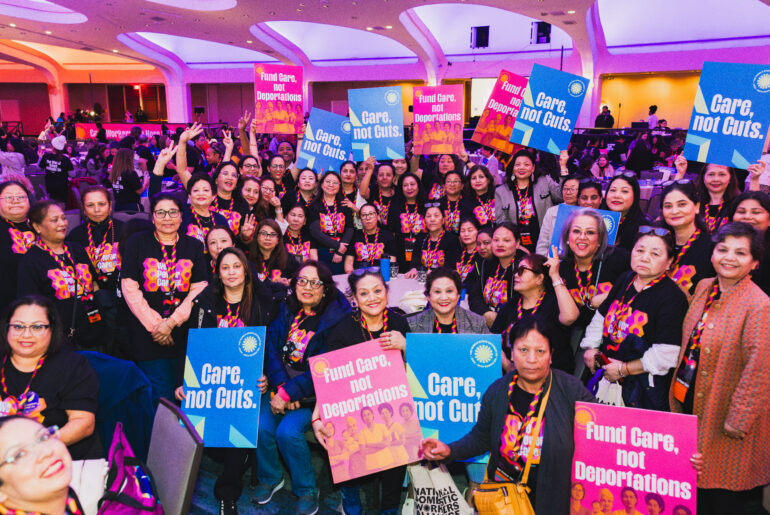The Trump administration’s harsh anti-immigrant policies are exacerbating the existing crisis in the U.S. care industry. Nannies, house cleaners, and home caregivers, jobs done largely by immigrant women, face more obstacles than ever in performing their work.
In its first 100 days, the current administration implemented over 30 executive actions on immigration. Raids, deportations, and the threat of eliminating protections such as Temporary Protected Status (TPS) are affecting both women workers and the families who depend on them.
The situation threatens to overwhelm an already precarious system and generate large-scale economic and social repercussions, according to experts and organizations.
The Impact of Anti-Immigrant Policies on Domestic Workers
Current immigration policies have had a profound impact on the lives of many immigrant domestic workers, who already face other challenges such as low wages and lack of labor protections.
“People are not showing up for work because they’re concerned about raids happening in their workplace,” said Lori Smetanka, executive director of the National Consumer Voice for Quality Long-Term Care.
A Venezuelan caregiver, who cares for a girl named Josephine, said she’s been experiencing constant anxiety ever since she received notice that her TPS is expiring. She said that every time she goes out, she fears that immigration agents will stop her just because she is Venezuelan.
Recently, the Supreme Court allowed the Trump administration to end TPS for certain countries, including Venezuela, leaving thousands of workers and the families who depend on them in limbo.
“Our family would be devastated beyond belief,” said Krysta Senek, Josephine’s mother, who depends on the caregiver’s work.
In northern California, a young Mexican mother who recently came to the U.S., is facing a similar dilemma. The woman said she is afraid to accept a job for fear of being separated from her three-month-old son. “I worry about leaving my child alone,” she told the Hechinger Report. “I am scared, especially because it sounds like they’ll be able to come into my place of work.”
Staffing Shortages
These policies are exacerbating staffing shortages in essential sectors such as childcare and elder care.
Rocío Sáenz, Service Employees International Union (SEIU) Secretary-Treasurer, explained to Newsweek that the elimination of programs such as TPS, which have enabled thousands of immigrants to live and work legally, could leave the country without a key part of its caregiving workforce.
It is estimated that strict anti-immigrant measures could reduce the number of immigrant workers by 400,000 per year, and the caregiving industry would lose between 1 and 2 percent of its workers per year.
Immigrants: The heart of the caregiving system
Immigrants, mainly women, are the backbone of the caregiving system in the United States.
According to the National Women’s Law Center (NWLC), more than 20% of early educators and 27% of direct care workers are immigrants. In states such as New York and New Jersey, the figure is over 50%.
Furthermore, although the figures are uncertain, it is estimated that there are more than 200,000 undocumented immigrants working as nannies, caregivers, and housekeepers. Without these workers, the system would collapse.
“If caregiving is the backbone of our workforce, then immigrant women are the heart,” said Karla Castillo, NWLC policy analyst.
Experts say that the contribution of these workers has a ripple effect on productivity throughout the economy, as it allows other parents to work.
The Impact on Families
The shortage of domestic workers, especially caregivers, was already hitting many families hard before immigration policies were tightened.
Poorly paid, physically taxing, and with little recognition, the sector fails to attract enough American workers. The average salary ranges between $34,000 and $38,000 per year, according to official data.
Now, the labor shortage could drive up care costs and leave thousands of older adults and people with disabilities without the services they need, several organizations warn.
“These policies don’t just create workforce shortages—they create suffering,” warns Ai-jen Poo, president of the National Domestic Workers Alliance. “People will go without essential care, families will be forced to leave work to provide it themselves, and care homes will be pushed beyond capacity.”
Note: The National Domestic Workers Alliance is the partner organization of La Alianza.
Faced with this situation, industry leaders are calling for urgent solutions. “We need Congress to expand and expedite opportunities for caregivers who wish to live and work in the United States, especially those who are willing to care [for] our nation’s seniors,” said Clif Porter, senior vice president of Government Relations for the American Health Care Association and National Center for Assisted Living (AHCA/NCAL). “Immigrants make up a vital part of our workforce and are critical to helping us address this historic labor crisis.”
Editor’s note: This article was originally written in Spanish and translated into English by Tilde Language Justice Cooperative







